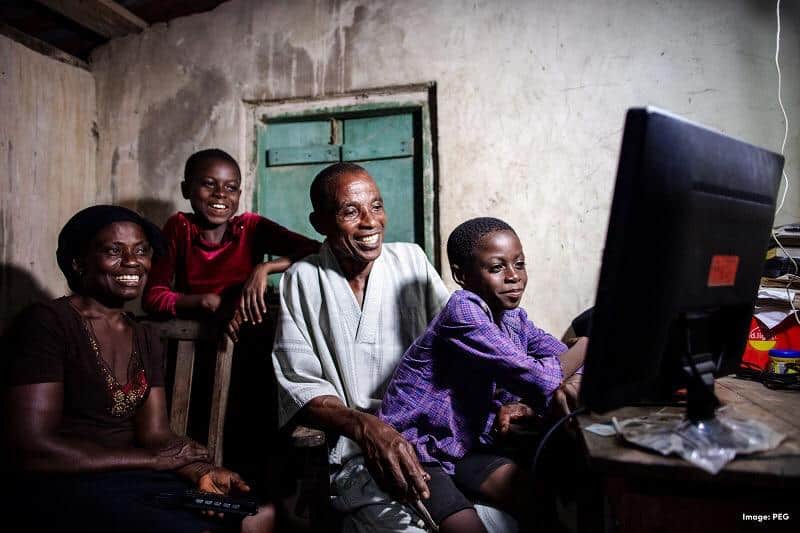According to the Global Association for the off-grid solar industry, GOGLA, the majority of West Africans using solar home systems report higher earnings and a better quality of life after three months of purchase. So the question beckons: Why aren’t more Africans using solar for home and business needs?

Over the last two decades, Africa has seen marked improvements in infrastructure and human capital development. And if its burgeoning technology scene fueled by a youthful and entrepreneurial approach to solving the continent’s most critical problems are anything to go by, then Africa is primed for explosive growth over the next few years.
Unfortunately, one of the continent’s most fundamental deficits continues to hold it back from soaring to the heights it promises, keeping it tethered in underdevelopment like an anchor to a steel ship.
It is no secret that Africa struggles to generate and distribute enough power to satisfy over 1.6 billion people who live and work in the region. And with an estimated 580 million Africans living without electricity, it is perhaps time for the continent to look towards its most abundant resource in search of respite.
Enter Solar energy: an alternative source of power that has repeatedly demonstrated its viability, not just as a clean and sustainable source of energy, but as a possible solution to Africa’s power conundrum. That it remains constricted to the backbenches despite the region receiving many more hours of sunlight than any other continent on earth is bewildering, to say the least.
GOGLA’s report, ‘Powering Opportunity in West Africa’, shows that by replacing kerosene lamps, candles and mini generator sets with solar home systems, West Africans can cut out harmful emissions from their lives. Their children are also able to study longer while businesses can create more openings by saving on fuel costs.
The report, funded by the UKAID and conducted by Altai consulting also shows that about 1 in 7 West Africans using solar home systems earn an average of $31 extra per month.
This is an astonishing find, considering that living and doing business in the city while depending on the national grid can often mean spending hundreds or thousands of dollars to fill the gaps required to meet home and business needs.
Entrepreneurs in Africa are all too familiar with the matter. Power– or its lack thereof– continues to inhibit small and medium scale enterprises in the region from blossoming into the hugely successful establishments they were designed to be.
The cost of overcoming this seemingly basic, yet elusive infrastructure snafu often eats deep into margins, leaving business owners wondering what could have been if things were perhaps different.
Across East Africa, the story is pretty much the same. Off-grid solar home system users are earning additional income and leading healthier lives. This makes it abundantly clear that the off-grid solar industry is one that deserves more than a passing look and a nod of approval.
It must now be seen as a solution that must be replicated at scale if Africa is to thrive and catch up with its peers. However, the onus rests on the government to eliminate the barriers preventing the adoption of off-grid solar and ensure that this life-changing technology is not just available, but also affordable to the everyday man on the street — and beyond the grid.
Based on conversations with many stakeholders across the region, there are two ways governments can help make these life-changing products and services more affordable and accessible in West Africa:
1. Import duty and VAT exemptions to make products more affordable
Across the region, Customs authorities rely on subjective interpretation at the point of entry. The industry is advocating for import duty and VAT exemptions on all solar products. However, revenue authorities, particularly ministries of finance, are keen to avoid exemptions for end-use appliances that come as part of solar home systems. This makes these products more expensive for customers. That’s why we need better coordination at the regional level, particularly through ECREEE, to make sure all countries support enabling tax regimes for the industry.
2. IEC or Lighting Global quality standards
In the region, IEC or Lighting Global quality standards have not been adopted or are non-mandatory.
Only if customers can access proven high-quality products can the industry grow sustainably? There’s progress, however: Lighting Global quality standards are in the process of being adopted by ECREEE. Once adopted, coordination through ECREEE will be important to achieve harmonization across the markets. Enforcement, both at the border and through general market surveillance, of quality standards is rarely discussed within markets but is key to building a market where people can choose from a range of affordable quality products.
Powering Opportunity has raised the prospect of a bright, equitable and sustainable energy future for all in West Africa and across the continent. It’s time for governments to work with the industry, donors, investors, and other partners to make this future a reality.
Africa stands on the cusp of a new dawn: an age of unprecedented growth defined by technology, resilience, collaboration and a sense of purpose. And as the popular saying goes: behind a dark cloud is a golden ray of sunshine.
It is time for Africa to emerge.








